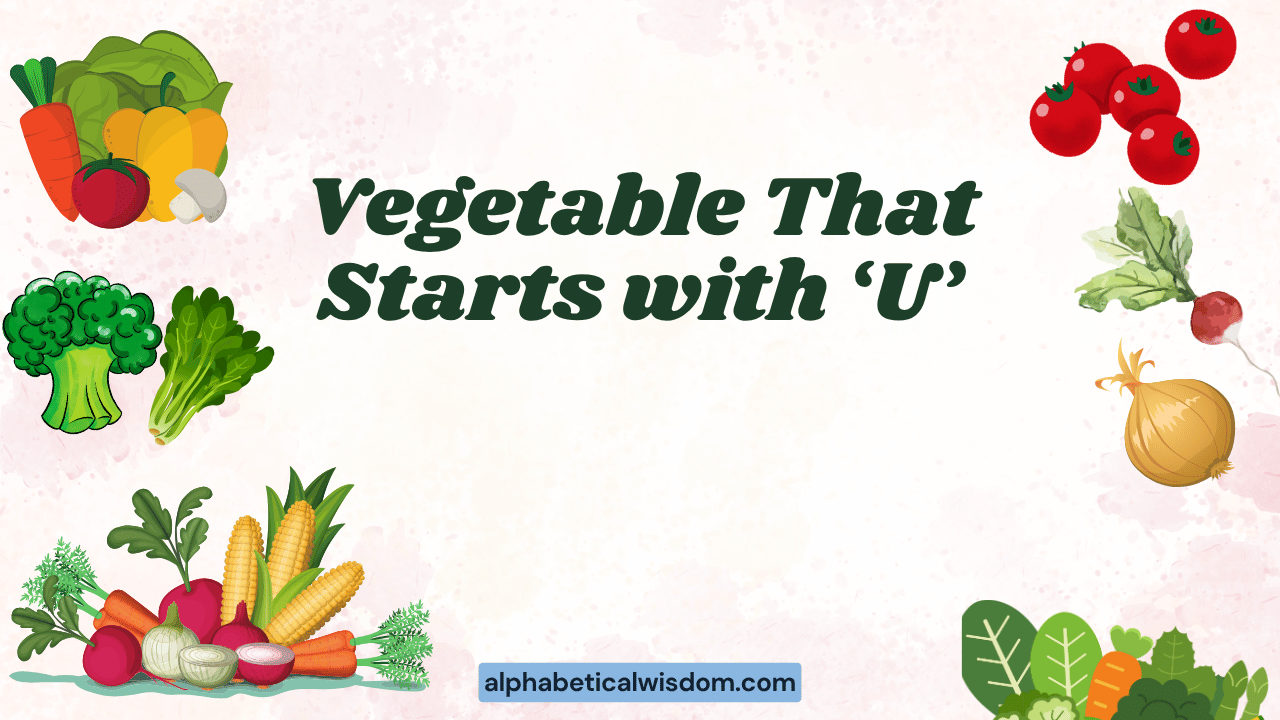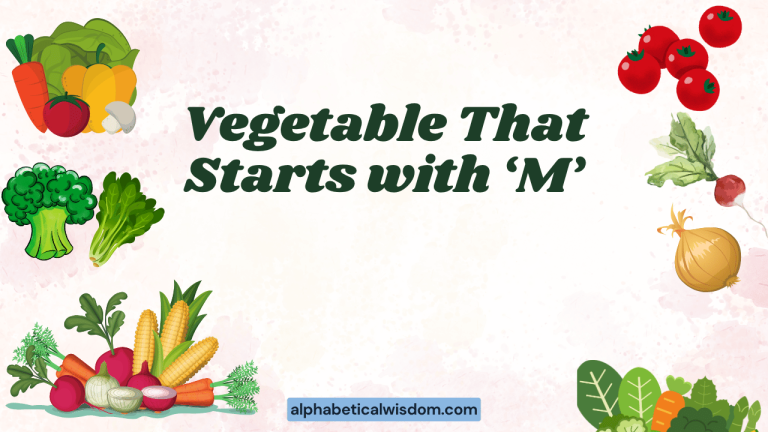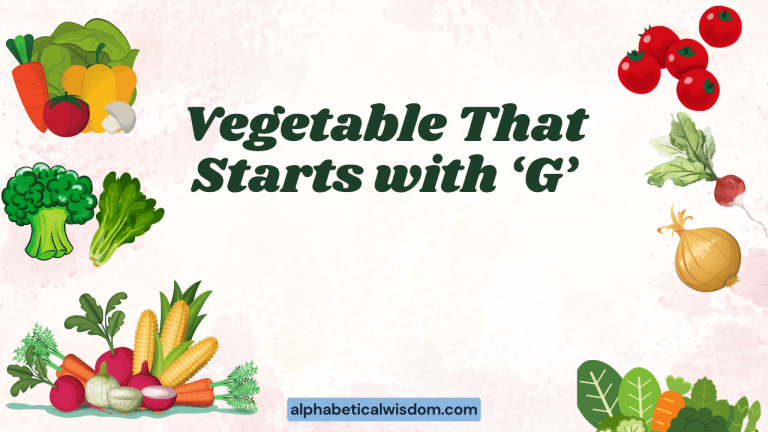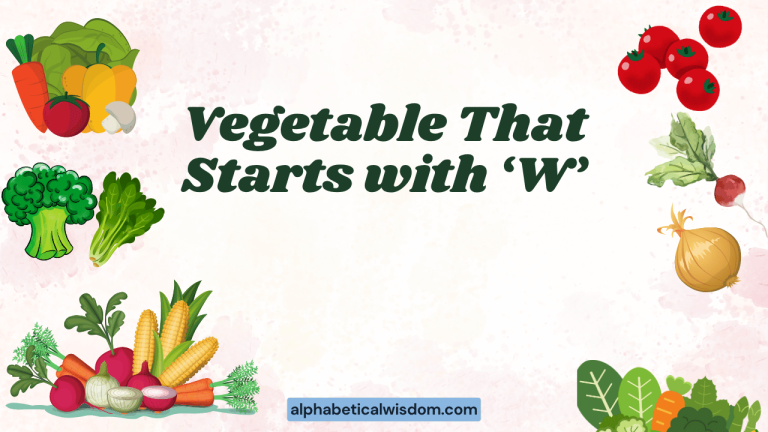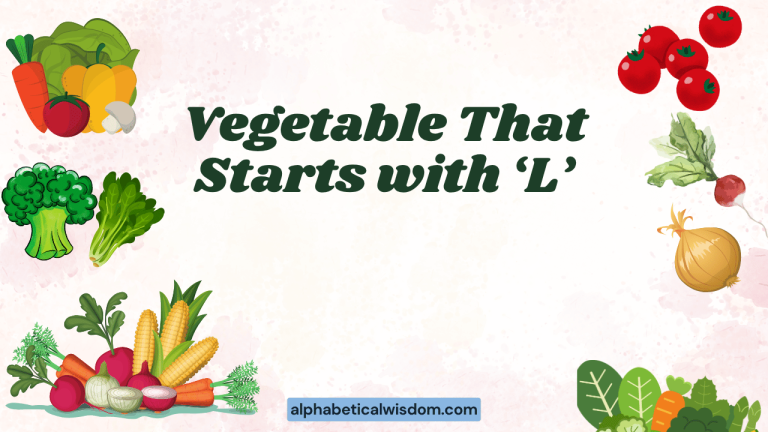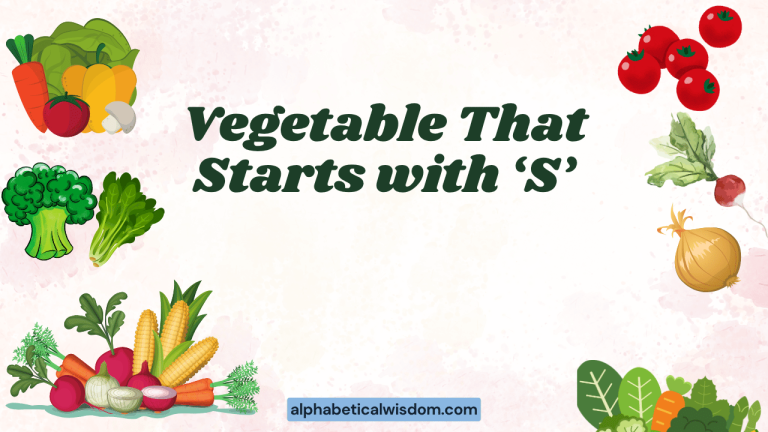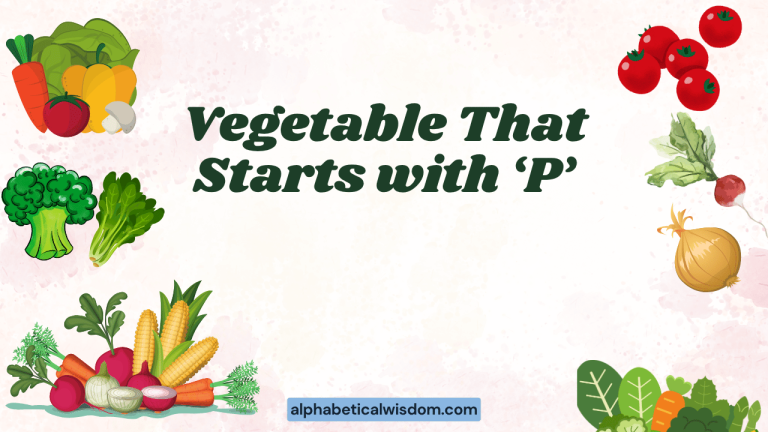Vegetables Starting With U: Grammar & Usage in English
Understanding how to use nouns, especially when referring to specific categories like vegetables beginning with the letter ‘U’, is crucial for clear and effective communication. This article explores the grammatical aspects of such nouns, focusing on their usage in sentences, common mistakes, and providing examples to enhance your comprehension.
Whether you are a beginner learning basic English grammar or an advanced learner aiming to refine your skills, this guide offers valuable insights and practical exercises to master this specific area of English vocabulary and grammar.
This article will benefit English language learners of all levels, from beginners who are just starting to build their vocabulary to advanced speakers who want to refine their grammar and usage. Native English speakers might also find it useful as a refresher or a resource for teaching others.
By the end of this guide, you will have a solid understanding of how to use “vegetables that start with U” correctly and confidently in various contexts.
Table of Contents
- Definition and Grammatical Classification
- Structural Breakdown: Singular and Plural Forms
- Types and Categories of Vegetables Starting with ‘U’
- Examples of Vegetables Starting With ‘U’ in Sentences
- Usage Rules: Articles, Quantifiers, and Context
- Common Mistakes and How to Avoid Them
- Practice Exercises
- Advanced Topics: Idiomatic Expressions and Figurative Language
- Frequently Asked Questions
- Conclusion
Definition and Grammatical Classification
In English grammar, the term “vegetable” functions as a noun. A noun is a word that represents a person, place, thing, or idea. “Vegetable” specifically refers to a plant or part of a plant used as food. When we discuss vegetables that start with the letter ‘U’, we are dealing with specific examples of this broader category. These specific names also function as nouns, and understanding their grammatical behavior is essential for constructing grammatically correct sentences.
Vegetables, including those starting with the letter ‘U’, are countable nouns. This means they can be singular or plural. This distinction is crucial in determining the correct verb agreement and the use of articles (a, an, the) and quantifiers (some, many, few). For example, you can have “one ugli fruit” or “several ugli fruits.” The grammatical classification of these nouns allows us to use them accurately in various sentence structures and contexts.
Nouns can function in various roles within a sentence. They can be the subject (the one performing the action), the object (the one receiving the action), or part of a prepositional phrase. Understanding these roles is vital for constructing complex sentences and conveying precise meaning. For example, in the sentence “The ugli fruit is on the table,” “ugli fruit” is the subject. In the sentence “I ate an ugli fruit,” “ugli fruit” is the object.
Structural Breakdown: Singular and Plural Forms
The structural breakdown of nouns, including those representing vegetables starting with ‘U’, primarily involves understanding their singular and plural forms. Most nouns form their plural by adding “-s” to the singular form.
However, there can be exceptions and irregularities depending on the specific word. For vegetables starting with ‘U’, the pluralization is generally straightforward.
Singular form: Refers to one instance of the vegetable (e.g., “an ugli fruit”).
Plural form: Refers to more than one instance of the vegetable (e.g., “ugli fruits”).
Let’s illustrate this with examples:
- Ugli fruit: Singular form
- Ugli fruits: Plural form
When using these nouns in sentences, it’s essential to ensure subject-verb agreement. This means that the verb must agree in number (singular or plural) with the subject of the sentence.
For example:
- Singular: The ugli fruit is ripe.
- Plural: The ugli fruits are ripe.
Understanding the difference between singular and plural forms and ensuring subject-verb agreement is fundamental to accurate and effective communication in English.
Types and Categories of Vegetables Starting with ‘U’
While the list of vegetables starting with the letter ‘U’ is relatively limited, understanding the specific types and categories can still be beneficial. The most common example is the ugli fruit, which is a type of tangelo (a hybrid of a tangerine and a pomelo or grapefruit). It’s important to note that the classifications can sometimes be ambiguous, as some fruits are often considered vegetables in culinary contexts.
Here’s a breakdown of the primary example:
- Ugli Fruit: A tangelo hybrid, known for its wrinkled skin and sweet-tart taste. It’s technically a fruit but is often discussed in the context of citrus fruits used in various culinary applications.
Understanding the categorization of these items helps in using them correctly in different contexts, whether you’re discussing botany, cooking, or nutrition.
Examples of Vegetables Starting With ‘U’ in Sentences
To solidify your understanding, let’s explore various examples of how vegetables starting with ‘U’ can be used in sentences. These examples are categorized to illustrate different grammatical functions and contexts.
General Usage Examples
This section provides basic examples of using “ugli fruit” in simple sentences.
The table below contains 20 examples of using “ugli fruit” in various sentence structures.
| # | Sentence |
|---|---|
| 1 | I bought an ugli fruit at the market today. |
| 2 | The ugli fruit is known for its unique taste. |
| 3 | Do you like ugli fruit? |
| 4 | She peeled the ugli fruit carefully. |
| 5 | We made juice from the ugli fruit. |
| 6 | An ugli fruit is a type of tangelo. |
| 7 | The ugli fruit tree is thriving in the garden. |
| 8 | He prefers ugli fruit over oranges. |
| 9 | The ugli fruit’s skin is quite thick. |
| 10 | Have you ever tasted an ugli fruit? |
| 11 | Ugli fruit is often used in salads. |
| 12 | She added ugli fruit to her smoothie. |
| 13 | The ugli fruit was surprisingly sweet. |
| 14 | I found a recipe for ugli fruit marmalade. |
| 15 | The store sells both organic and non-organic ugli fruit. |
| 16 | Ugli fruit is a good source of vitamin C. |
| 17 | He gave me an ugli fruit as a gift. |
| 18 | The ugli fruit’s aroma filled the room. |
| 19 | They imported ugli fruit from Jamaica. |
| 20 | Eating an ugli fruit is a refreshing experience. |
Descriptive Usage Examples
This section focuses on using adjectives to describe the “ugli fruit,” adding more detail to the sentences.
The following table provides 25 examples of using descriptive adjectives to modify “ugli fruit” in sentences.
| # | Sentence |
|---|---|
| 1 | The sweet ugli fruit was a delight. |
| 2 | I prefer the tangy ugli fruit variety. |
| 3 | The juicy ugli fruit made a refreshing snack. |
| 4 | The large ugli fruit was enough to share. |
| 5 | The ripe ugli fruit had a vibrant color. |
| 6 | The organic ugli fruit tasted especially fresh. |
| 7 | The wrinkled ugli fruit looked unusual. |
| 8 | The Jamaican ugli fruit is considered the best. |
| 9 | The local ugli fruit is in season now. |
| 10 | The expensive ugli fruit was worth the price. |
| 11 | The unripe ugli fruit was too sour. |
| 12 | The fragrant ugli fruit filled the kitchen with its scent. |
| 13 | The small ugli fruit was perfect for a single serving. |
| 14 | The delicious ugli fruit disappeared quickly. |
| 15 | The imported ugli fruit was hard to find. |
| 16 | The bright ugli fruit stood out on the shelf. |
| 17 | The bitter ugli fruit needed some sugar. |
| 18 | The fresh ugli fruit was perfect for juicing. |
| 19 | The giant ugli fruit weighed almost a pound. |
| 20 | The healthy ugli fruit is full of vitamins. |
| 21 | The perfect ugli fruit is hard to find. |
| 22 | The rare ugli fruit is a delicacy. |
| 23 | The tender ugli fruit was easy to peel. |
| 24 | The zesty ugli fruit added a kick to the salad. |
| 25 | The vibrant ugli fruit was a feast for the eyes. |
Comparative Usage Examples
This section demonstrates the use of comparative adjectives when talking about “ugli fruit.”
The following table provides 20 examples of using “ugli fruit” in comparative sentences.
| # | Sentence |
|---|---|
| 1 | Ugli fruit is sweeter than grapefruit. |
| 2 | This ugli fruit is larger than the one I bought yesterday. |
| 3 | Ugli fruit is more flavorful than some oranges. |
| 4 | The ugli fruit from Jamaica is considered better. |
| 5 | This year’s ugli fruit crop is more abundant. |
| 6 | Ugli fruit is less acidic than lemons. |
| 7 | The taste of ugli fruit is more complex than a simple tangerine. |
| 8 | Organic ugli fruit is often more expensive. |
| 9 | Ugli fruit is easier to peel than some other citrus fruits. |
| 10 | The juice from this ugli fruit is more refreshing. |
| 11 | Ugli fruit is healthier than many processed snacks. |
| 12 | The ugli fruit I had today was juicier than the last one. |
| 13 | This ugli fruit is more ripe than it looks. |
| 14 | Ugli fruit is more versatile in recipes than I thought. |
| 15 | The texture of ugli fruit is smoother than a grapefruit. |
| 16 | Ugli fruit is more popular in some regions than others. |
| 17 | The aroma of ugli fruit is stronger than a lemon’s. |
| 18 | Ugli fruit is more nutritious than some other fruits. |
| 19 | An ugli fruit is larger than a tangerine. |
| 20 | Ugli fruit is more interesting than a plain orange. |
Conditional Usage Examples
This section shows how to use “ugli fruit” in conditional sentences (if/then statements).
The table below contains 20 examples of using “ugli fruit” in conditional sentences.
| # | Sentence |
|---|---|
| 1 | If I find an ugli fruit, I will make juice. |
| 2 | If you like citrus, you will enjoy ugli fruit. |
| 3 | If the ugli fruit is ripe, it will be very sweet. |
| 4 | If I had an ugli fruit, I would make a salad. |
| 5 | If you peel an ugli fruit, the aroma will fill the room. |
| 6 | If ugli fruit is on sale, I always buy some. |
| 7 | If I didn’t know better, I’d think ugli fruit was a type of grapefruit. |
| 8 | If you add ugli fruit to the recipe, it will taste even better. |
| 9 | If the ugli fruit is too sour, add a little honey. |
| 10 | If I see ugli fruit at the market, I’m going to get it. |
| 11 | If you want a healthy snack, try an ugli fruit. |
| 12 | If I were to grow my own citrus, I’d plant ugli fruit. |
| 13 | If the ugli fruit is not available, I’ll get oranges instead. |
| 14 | If you mix ugli fruit with other fruits, it creates a great flavor. |
| 15 | If I had known about ugli fruit sooner, I would have tried it earlier. |
| 16 | If the ugli fruit is properly stored, it can last for weeks. |
| 17 | If you are looking for a unique citrus flavor, ugli fruit is perfect. |
| 18 | If I find organic ugli fruit, I always choose it over non-organic. |
| 19 | If the ugli fruit is too expensive, I’ll wait for a sale. |
| 20 | If you are curious about new fruits, ugli fruit is a great one to start with. |
Interrogative Usage Examples
This section demonstrates how to use “ugli fruit” in questions.
The following table provides 20 examples of using “ugli fruit” in interrogative sentences.
| # | Sentence |
|---|---|
| 1 | Have you ever tried ugli fruit? |
| 2 | Do you like ugli fruit? |
| 3 | Is ugli fruit sweet or sour? |
| 4 | Where can I buy ugli fruit? |
| 5 | How does ugli fruit taste? |
| 6 | What is ugli fruit? |
| 7 | Why is it called ugli fruit? |
| 8 | Can you make juice from ugli fruit? |
| 9 | Is ugli fruit good for you? |
| 10 | Are ugli fruits in season now? |
| 11 | How much does ugli fruit cost? |
| 12 | Which is better, ugli fruit or grapefruit? |
| 13 | Will ugli fruit ripen if I leave it out? |
| 14 | Should I refrigerate ugli fruit? |
| 15 | Could you describe the flavor of ugli fruit? |
| 16 | What are the benefits of eating ugli fruit? |
| 17 | When is the best time to buy ugli fruit? |
| 18 | Who first discovered ugli fruit? |
| 19 | Is ugli fruit a hybrid? |
| 20 | How do you peel an ugli fruit? |
Usage Rules: Articles, Quantifiers, and Context
Understanding the usage rules for nouns like “ugli fruit” involves knowing when to use articles (a, an, the), quantifiers (some, any, many, few), and how context affects their use. These rules ensure grammatical correctness and clarity in communication.
Articles:
- “A/An”: Use “an” before “ugli fruit” because it begins with a vowel sound. “An ugli fruit” refers to a single, non-specific ugli fruit.
- “The”: Use “the” when referring to a specific ugli fruit that has already been mentioned or is known to the listener/reader. For example, “The ugli fruit I bought yesterday was delicious.”
- Zero article: When speaking about ugli fruit in general, you can omit the article. For example, “Ugli fruit is a good source of vitamin C.”
Quantifiers:
- “Some”: Use “some” to indicate an unspecified quantity. For example, “I bought some ugli fruit at the store.”
- “Any”: Use “any” in questions or negative statements. For example, “Do you have any ugli fruit?” or “I don’t have any ugli fruit.”
- “Many/Few”: These are used when referring to a specific number. However, they are less common with “ugli fruit” as it’s not typically bought in large quantities.
Context:
The context of the sentence and the surrounding conversation can influence the choice of articles and quantifiers. For instance, if you are at a grocery store and asking about a specific type of fruit, you might say, “Do you have the ugli fruit from Jamaica?” Here, “the” specifies a particular type of ugli fruit.
Common Mistakes and How to Avoid Them
Even with a solid understanding of grammar, common mistakes can occur. Identifying these errors and learning how to correct them is crucial for improving your English proficiency.
Here, we’ll focus on mistakes commonly made when using the noun “ugli fruit.”
Mistake 1: Incorrect Article Usage
| Incorrect | Correct | Explanation |
|---|---|---|
| I ate a ugli fruit. | I ate an ugli fruit. | “Ugli” starts with a vowel sound, so “an” is the correct article. |
| Ugli fruit is my favorite. | The ugli fruit is my favorite. OR Ugli fruit is my favorite. | “The” should be used if referring to a specific ugli fruit. No article is used when speaking about ugli fruit in general. |
Mistake 2: Pluralization Errors
| Incorrect | Correct | Explanation |
|---|---|---|
| I bought three ugli fruit. | I bought three ugli fruits. | “Ugli fruit” is a countable noun and needs to be pluralized with “-s” when referring to more than one. |
Mistake 3: Subject-Verb Agreement
| Incorrect | Correct | Explanation |
|---|---|---|
| The ugli fruits is delicious. | The ugli fruits are delicious. | The plural noun “ugli fruits” requires the plural verb “are.” |
Mistake 4: Misunderstanding the Noun Type
| Incorrect | Correct | Explanation |
|---|---|---|
| Much ugli fruit is wasted every year. | Some ugli fruit is wasted every year. | “Ugli fruit” is a countable noun, so “much” is not appropriate. “Some” indicates an unspecified amount. |
Practice Exercises
To reinforce your understanding, complete the following exercises. These exercises are designed to test your knowledge of the rules and concepts discussed in this article.
Exercise 1: Fill in the Blanks
Fill in the blanks with the correct article (a, an, the) or quantifier (some, any).
| # | Sentence | Answer |
|---|---|---|
| 1 | I want to buy _______ ugli fruit. | an |
| 2 | Do you have _______ ugli fruit at home? | any |
| 3 | _______ ugli fruit I ate yesterday was very sweet. | The |
| 4 | I need to buy _______ ugli fruit for the recipe. | some |
| 5 | Is that _______ ugli fruit on the table? | an |
| 6 | He doesn’t have _______ ugli fruit to share. | any |
| 7 | _______ ugli fruit is a good source of Vitamin C. | Ugli fruit (no article) |
| 8 | I saw _______ ugli fruit at the market today. | an |
| 9 | She brought _______ ugli fruit to the party. | some |
| 10 | _______ ugli fruit from Jamaica is the best. | The |
Exercise 2: Correct the Errors
Identify and correct the errors in the following sentences.
| # | Incorrect Sentence | Correct Sentence |
|---|---|---|
| 1 | I ate a ugli fruits. | I ate an ugli fruit. |
| 2 | The ugli fruit are delicious. | The ugli fruit is delicious. |
| 3 | I bought much ugli fruit today. | I bought some ugli fruit today. |
| 4 | Do you has any ugli fruit? | Do you have any ugli fruit? |
| 5 | Ugli fruit are good for you. | Ugli fruit is good for you. |
| 6 | I like a ugli fruit. | I like ugli fruit. OR I like an ugli fruit. |
| 7 | She eat the ugli fruit. | She eats the ugli fruit. |
| 8 | We need buy ugli fruit. | We need to buy ugli fruit. |
| 9 | He give me ugli fruits. | He gave me ugli fruits. |
| 10 | The ugli fruits is on sell. | The ugli fruits are on sale. |
Exercise 3: Sentence Construction
Construct sentences using the given prompts and the noun “ugli fruit.”
| # | Prompt | Example Sentence |
|---|---|---|
| 1 | Describe the taste of ugli fruit. | The ugli fruit has a sweet and tangy taste. |
| 2 | Ask if someone has ever tried ugli fruit. | Have you ever tried ugli fruit? |
| 3 | Say you want to buy some ugli fruit. | I want to buy some ugli fruit. |
| 4 | Explain where ugli fruit comes from. | Ugli fruit comes from Jamaica. |
| 5 | Compare ugli fruit to another citrus fruit. | Ugli fruit is sweeter than grapefruit. |
| 6 | Ask if ugli fruit is in season. | Is ugli fruit in season? |
| 7 | Say that ugli fruit is good for you. | Ugli fruit is good for you. |
| 8 | Describe the appearance of an ugli fruit. | An ugli fruit has a wrinkled skin and orange color. |
| 9 | Say you made juice from ugli fruit. | I made juice from ugli fruit. |
| 10 | Ask how much ugli fruit costs. | How much does ugli fruit cost? |
Advanced Topics: Idiomatic Expressions and Figurative Language
While “ugli fruit” is not commonly used in idiomatic expressions or figurative language due to its relatively limited usage, understanding how nouns can be used in these contexts is valuable for advanced learners. Idiomatic expressions are phrases whose meanings are not predictable from the literal meanings of the words, and figurative language involves using words or expressions with a meaning that is different from the literal interpretation.
For example, we can explore hypothetical scenarios where “ugli fruit” might be used figuratively:
- “Life gives you ugli fruits”: This could be a play on the common expression “When life gives you lemons, make lemonade,” suggesting that even when faced with something initially unappealing (like the name “ugli fruit”), you can still make something positive.
Understanding the nuances of idiomatic expressions and figurative language requires extensive exposure to the language and a keen awareness of cultural contexts. While “ugli fruit” may not be a common element in these areas, the principles apply to all nouns and are essential for mastering advanced English.
Frequently Asked Questions
Here are some frequently asked questions about using “vegetables starting with U” in English grammar.
- Is “ugli fruit” a fruit or a vegetable?
Technically, “ugli fruit” is a fruit. It is a hybrid of a tangerine, grapefruit, and orange. However, in some culinary contexts, fruits are sometimes used as vegetables, so the distinction can be blurred depending on the specific application.
- Why is it called “ugli fruit”?
The name “ugli fruit” comes from its appearance. It has a wrinkled, unattractive skin. However, the taste is quite pleasant, which is why the name is somewhat ironic.
- How do I use articles (a, an, the) with “ugli fruit”?
Use “an” before “ugli fruit” because it begins with a vowel sound: “an ugli fruit.” Use “the” when referring to a specific ugli fruit: “The ugli fruit I bought was ripe.” When speaking about ugli fruit in general, you can omit the article: “Ugli fruit is delicious.”
- What is the plural form of “ugli fruit”?
The plural form of “ugli fruit” is “ugli fruits.”
- Can I use “much” with “ugli fruit”?
No, “ugli fruit” is a countable noun, so you should use “many” for plural or “some” for an unspecified amount. For example, “I bought some ugli fruit today.”
- Is “ugli fruit” a common word in English?
While “ugli fruit” is a recognized word, it is not as common as other fruit names like “apple” or “orange.” It is more likely to be used in specific contexts such as discussing exotic fruits or Jamaican cuisine.
- How do I ensure subject-verb agreement with “ugli fruit”?
If you’re referring to “ugli fruit” in the singular, use a singular verb: “The ugli fruit is ripe.” If you’re referring to “ugli fruits” in the plural, use a plural verb: “The ugli fruits are ripe.”
- What are some other ways to describe “ugli fruit”?
You can describe “ugli fruit” using adjectives such as sweet, tangy, juicy, wrinkled, Jamaican, or organic. For example, “The Jamaican ugli fruit is very flavorful.”
- Can “ugli fruit” be used in idioms?
No, “ugli fruit” is not typically used in common idioms. Its usage is primarily literal, referring to the specific fruit.
- Is it correct to say “ugli fruit is a type of vegetable”?
No, it is more accurate to say that “ugli fruit is a type of fruit,” specifically a tangelo hybrid. While some fruits can be used as vegetables in cooking,
is more accurate to say that “ugli fruit is a type of fruit,” specifically a tangelo hybrid. While some fruits can be used as vegetables in cooking, ugli fruit is generally categorized as a fruit.
Conclusion
Mastering the usage of nouns, particularly when referring to specific categories like vegetables starting with the letter ‘U’, is essential for effective communication in English. While the list of vegetables in this category may be limited, understanding the grammatical rules, common mistakes, and contextual nuances associated with terms like “ugli fruit” can significantly enhance your language skills.
By reviewing the definitions, structural breakdowns, usage examples, and practice exercises provided in this article, you can confidently and accurately incorporate these nouns into your everyday conversations and writing. Remember to pay attention to article usage, pluralization, subject-verb agreement, and the specific context in which you are using the words.
Continued practice and exposure to various English texts and conversations will further solidify your understanding and fluency, enabling you to communicate with greater precision and confidence. Whether you are a student, a professional, or simply an English language enthusiast, mastering these fundamental concepts will undoubtedly contribute to your overall success in using the English language effectively.
